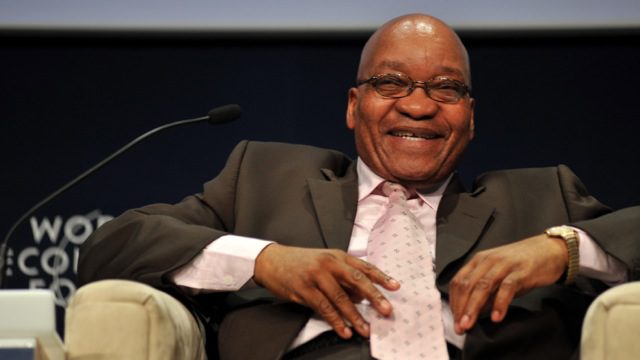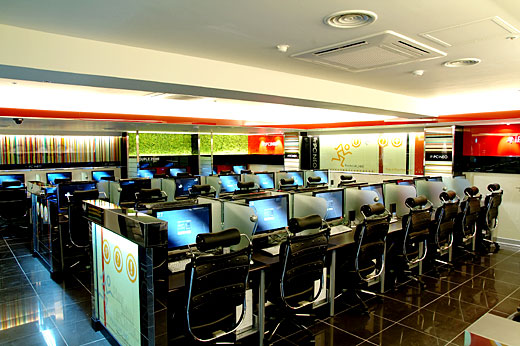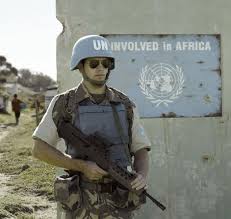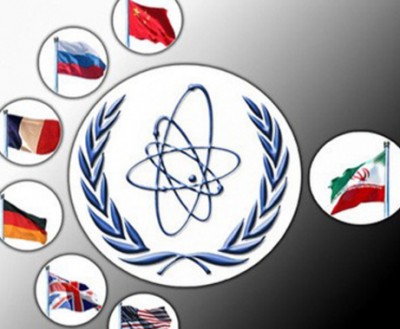In 2016, South Africa experienced possibly its most unstable time since the end of Apartheid. Often praised as a model of democracy on the continent, it drew outrage last November when it officially announced its withdrawal from the International Criminal Court (ICC). While grabbing the global headlines, the decision reflects a more existential threat, namely President Jacob Zuma’s continuous assault on South Africa’s democracy. An endless cycle of political drama and economic disarray, dominated by allegations of high-level corruption and graft, have led to court cases, political infighting, and massive public demonstrations against Zuma and his elite. Numerous scandals continue to damage his presidency, his African National Congress (ANC) party, and his inner circle. With public frustration mounting, and party loyalists in doubt, many critics believe 2017 could see the end of President Zuma.
Critics of Zuma characterize his administration as ‘Mafiosi’ in style. In tandem with his personal allies, he has used any means necessary to remain in power and preserve his wealth. The country’s treasury, banking system, judiciary and independent Public Protector watchdog have all been under attack by powerful officials and businessmen looking to enrich themselves. From using state resources to upgrade his private residence with a swimming pool, to corruption allegations linked to arms deals, Zuma has been at the epicentre of it all. Overall, he has an incredible 783 charges pending against him on corruption, racketeering, and fraud.
The President’s conduct has inevitably fuelled political-economic chaos in the country. In December 2015, for instance, Zuma unexpectedly fired his finance minister, replacing him with an unknown loyalist. Only days later, he was forced to reinstate Parvin Gordhan after the value of domestic shares and bonds fell $35 billion USD. Gordhan has continually blocked schemes to plunder state resources, and this past October, the National Prosecuting Authority (NPA), a Zuma ally, charged Gordhan on politically motivated fraud charges. These charges were later dropped following a massive devaluation of the Rand and public protests, but the episode illustrates a deeply entrenched culture of corruption and economic mismanagement that for years has overshadowed South African politics.
Things got even worse in late 2016, amid allegations that the powerful Gupta business family inappropriately benefited from their links to Zuma and the ANC. In November, a damning corruption report by the country’s Public Protector outlined a unique type of endemic and deeply rooted corruption known as “state capture,” in which business moguls influence the government to shape laws, financial regulations, and rules of the game to their advantage. Principal among these are the Guptas, accused of wielding massive political-economic influence in the country in an attempt to advance their business interests – even controlling the selection of top officials. Last year, for instance, deputy finance minister Mcebisi Jonas confirmed the Gupta family offered him the position of finance minister. The report, which Zuma tried to block in court from being released, sparked massive demonstrations calling on the President to resign.
The ANC has suffered for staying loyal to Zuma. The party has been in power since the end of Apartheid in 1994, but in August, was dealt a major blow when it suffered its worst ever loss in local elections, losing control of major cities including Johannesburg, Port Elizabeth and Pretoria. South Africans, increasingly frustrated with rampant inequality, economic mismanagement and high rates of unemployment, are laying the blame on Zuma’s ANC. After years of scandals, barely a third of South Africans now trust Zuma, and his approval rating remains the lowest of any African leader. Indeed, many in the ANC are beginning to abandon party solidarity and have joined the public outcry against the President. For the first time in the post-Apartheid era, the ANC is struggling to retain its hold over an increasingly disenchanted electorate.
For the time being, however, Zuma has proven resilient, able to remain in office by rallying support from the party’s elite. His ANC still has a massive majority in parliament, so impeachment is unlikely. In an unprecedented move of defiance this November, three cabinet ministers formally requested that Zuma step down. Despite his disastrous year, the party’s executive committee swiftly rejected the request. The President’s survival was virtually guaranteed, as loyalists appointed by him over his years in power dominate the 104-member committee. The ANC is clearly divided, however, and increased infighting within the ANC could portend a broader political crisis as the party moves towards the election of a new party president in 2017 and national elections in 2019.
Zuma and his cronies will continue to dig their heels in this year, preventing opponents from making necessary political and economic reforms. Telling will be the ANC’s national convention in December, when the party will select a new leader who will signal the future direction of the country and stand for president in 2019. With the 783 charges still hanging over him, Zuma will likely favour (and essentially choose) his ex-wife, Nkosazana Dlamini-Zuma, who will shield him from future prosecution and virtually guarantee the continuation of the political status quo. This would be bad news for South Africa’s democratic future.
Still, it appears that little by little, Zuma is losing his grip on power. Opposition parties such as the EFF and DA, who won big in August’s elections, continue to gain ground and demand Zuma should leave office immediately; at the same time, more than 40 CEOs of popular listed companies have called for new political leadership. Many in the ANC, as well, increasingly resent the influence of the Guptas, Zuma’s assault on South Africa’s democratic institutions, and the party’s waning power and popularity.
The conflict between President Zuma and his opponents both within and beyond the ruling ANC will deepen in 2017, putting the South African economy at greater risk and damaging regional stability. Zuma should pave the way for real democratic and economic reformers in his party, better respect the independence and strength of South Africa’s institutions, and make a concerted effort to end the practice of state capture practiced by his cronies. Through this, he should accept a compromise candidate to take his place when he retires as ANC leader at the end of the year. The increasingly autocratic conduct of his inner circle, and the virtual immunity he enjoys as president, however, means he will almost certainly not make necessary reforms, and will not give up without a fight.
Photo: “Jacob Zuma, 2009 World Economic Forum on Africa-10” (2009), by Eric Miller via Wikimedia. Licensed under CC BY-SA 2.0.
Disclaimer: Any views or opinions expressed in articles are solely those of the authors and do not necessarily represent the views of the NATO Association of Canada.




